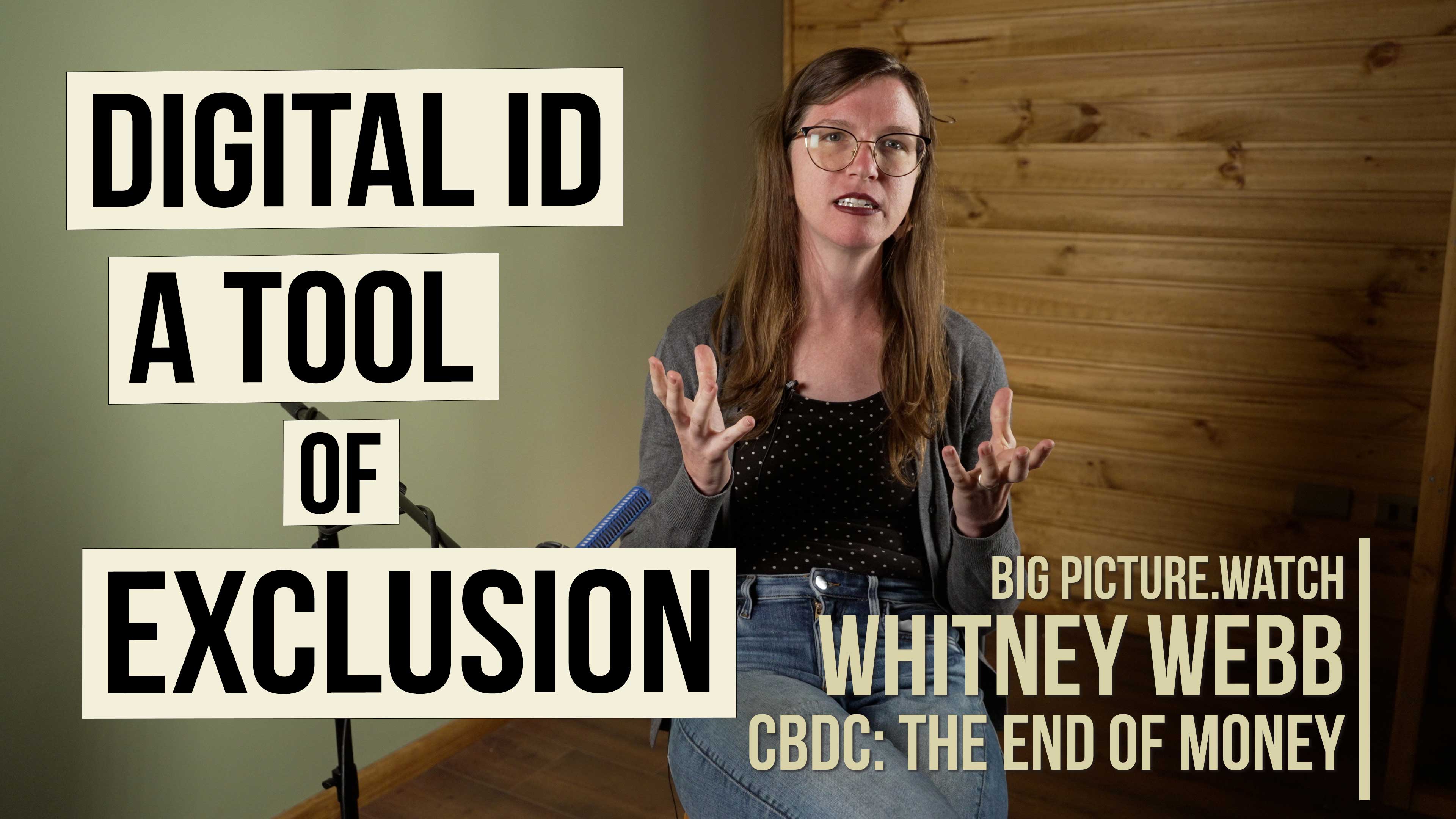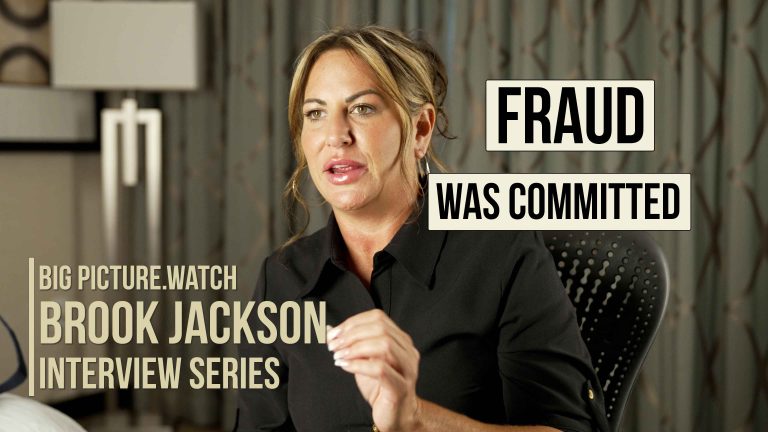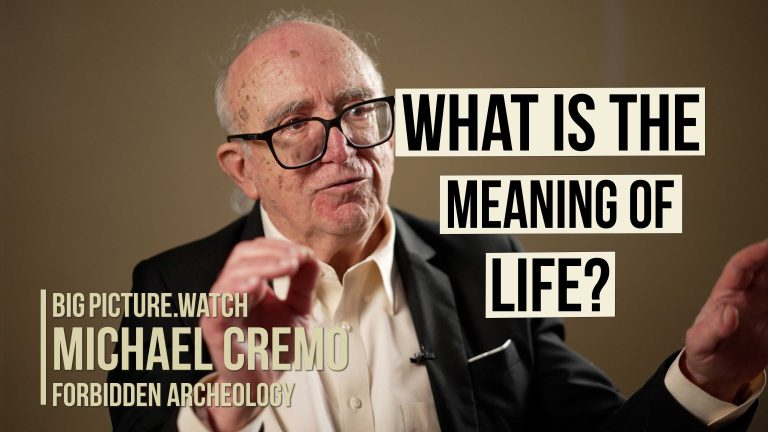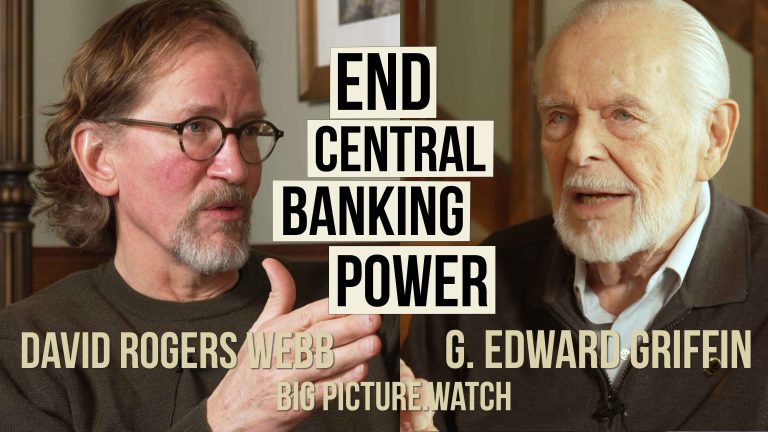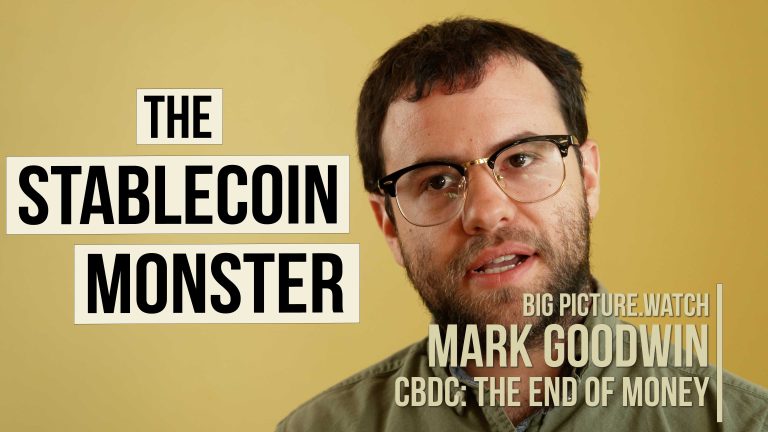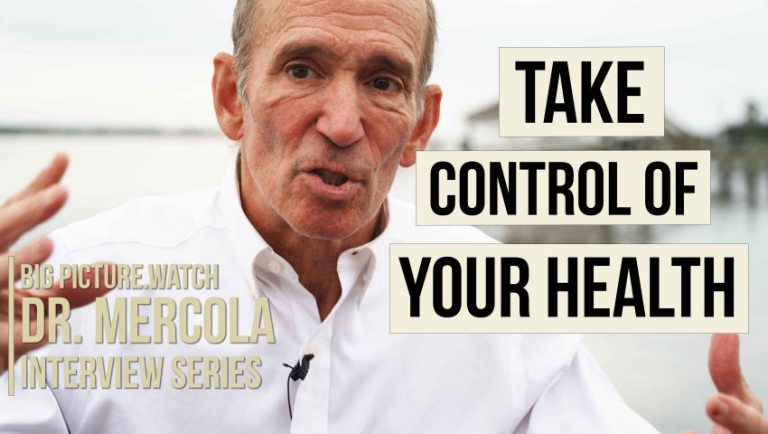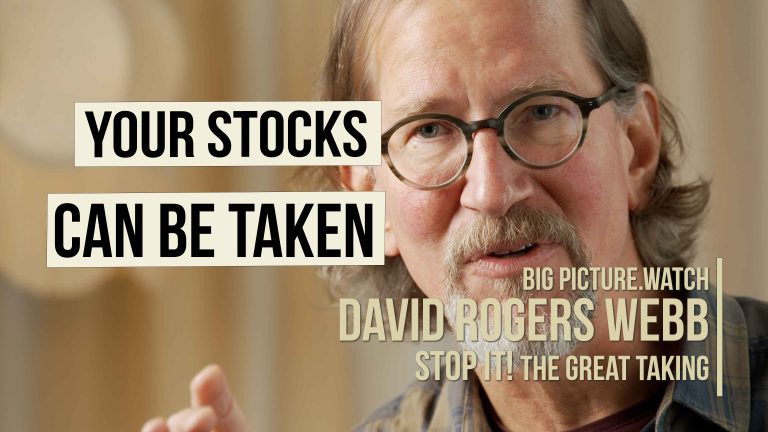Digital ID: Tool of Exclusion | Whitney Webb
Shot as a part of the film CBDC: THE END OF MONEY
I traveled to Chile to interview Whitney Webb, the contributing editor to Unlimited Hangout and formerly the senior investigative reporter at MIT Press News. Webb has honed a reputation as one of the most rabid researchers in independent journalism today.
This interview was shot in the making of the documentary CBDCs: The End of Money.
PLEASE DONATE for Cinema-Quality Interviews
In this eye-opening interview, Webb discusses how there is a global push by governments worldwide to implement digital IDs based on biometrics, and how digital IDs are required to make CBDCs work.
“They want to move not just to a cashless society, but a cashless and cardless society. The goal is to have you pay with your face or pay with your biometrics or your palm of your hand. This is already being rolled out at Amazon-owned entities. JP Morgan is piloting it for their customers, and I’m sure at some point if you don’t want to use your biometrics for those purposes, then your bank will be like, ‘Sorry… you can’t bank with us.’”
Digital IDs are a key part of the United Nations “Sustainable Development Goals”, or SDGs, also known as Agenda 2030. The specific part of the Sustainable Development Goals dealing with digital IDs is within SDG 16, which they claim is about building “peaceful and inclusive societies.” The primary organization pushing this agenda is ID2020 and the Digital Impact Alliance.
These U.N. and transnational entities claim the lack of digital ID is preventing people—mainly the world’s poor—from accessing essential services, whether it’s banking, education, or health care. They call this the “Identity Gap”.
Another talking point is that people will have better control over the use of their identity with digital IDs, but in practice, these systems take over people’s lives and ultimately grant policymakers total control over every aspect of your life.
One alarming U.N. document, People’s Money: Harnessing Digitalization to Finance a Sustainable Future, outlines the creation of a citizen-centric, SDG-aligned digital financial system that will have the right to access and use your funds to develop and implement the Sustainable Development Goals. Essentially, they think that your money is their money.
The vaccine passports piloted under Covid shows that such digital ID systems are exclusionary. The vaccine passports implemented worldwide in late-2021 and early-2022 linked your identity to your freedom of movement, and if you didn’t have one, you were excluded from entering certain places.
U.N.-sponsored groups like ID2020 are constructing this while trying to hide behind a facade of decentralization and construct digital identity in a way that they call “vendor agnostic,” meaning that any private company, in theory, could develop a digital ID system that people could use. The guise of decentralization hides a totally-centralized interoperable system that sweeps up everyone’s private information. National governments are viewed as “enabling environments” that simply implement the U.N. Sustainable Development Goals. This usurps all national sovereignty.
In the early 1970s, Samuel Pisar, the stepfather of current Secretary of State Antony Blinken, told Congress that the world was moving “toward a single, unified world economy, in disregard of national frontiers, and even ideological boundaries.” He stated that “all conventional tools of national policy, it seems to me, are rapidly becoming anachronistic [as] the State itself, even a strong one, […] is no longer a defendable economic entity.” This embodies the concept that nation states are becoming subservient global financial interests.
According to Webb, the World Bank has a modus operandi:
“Basically, [the World Bank has been] giving loans to countries, saddling them with debt, and then they struggled to repay their debt, and the way they’re able to get new disbursements or pay back their debt is related to them enacting policy objectives.”
Kofi Anon called the rise of public-private partnerships a quiet revolution where international capital is dominating the policies of the U.N. Policies are written by private interests, but implemented by the public sector. Rather than being a free market process, we are ruled by a crony capitalist structure, a cartelist system of global governance.
Webb states: “I think there’s a lot of growing awareness that the U.N. as the global superpower is problematic for a variety of reasons,” and, “the same people that ensured the US as the superpower in the post-World War Two era are also behind the creation of this multipolar world order that is also being currently created right now.”
“After World War Two, there was the Bretton Woods Agreement, which helped ensure U.S. financial hegemony around the world. And currently we have what a lot of these same actors are calling the New Bretton Woods Agreement. So that needs to be seized [CHECK] in order to create a new global financial governance system. That new system is framed as being multipolar in nature.”
“In the case of digital IDs, there’s this push to create decentralized IDs. And – that sounds great in practice, but in reality, these rely on – ‘trusted third parties’ to verify those credentials [that] are the same government agencies and – big banks – that are those same trusted third parties.”
“When you move into this digital currency era where the banks are issuing these stablecoins, [they won’t just be] programmable. They’re going to be sharing this data in the same database that the CIA and any other intelligence agency can access whenever they want without a warrant. Warrantless spying is baked into the new system to come.”
Mark Carney, who is the former head of the Bank of England and a former Goldman Sachs executive, has been very vocal about the need to create this new financial system that [will] be based mainly on three things what he called in Jackson Hole in 2019 multipolar currencies, CBDCs and global carbon markets” [UNCLEAR MUST CHECK QUOTE]. And a few years later, Carney created the Glasgow Financial Alliance for Net Zero that advocates for a New Bretton Woods Agreement in order to create a new global financial governance system.
“One thing people don’t realize about the digital ID thing, too, is that there’s a push not just to have people have digital ID, but literally everything alive have the digital ID. Larry Fink talked about this when he recently talked about how he views the tokenization of real world assets moving forward. Everything’s going to be on this universal ledger and have its unique identifier.”
A new concept of natural asset companies is being promoted by the Intrinsic Exchange Group and bythe Rockefeller Foundation; a new asset class is being created. All of nature will have these unique identifiers. Webb observes, “There’s a lot of efforts right now, for example, to tokenize rain forests, sothat rain forest will also be given a unique identifier, a digital ID.”
“The Rockefeller Foundation and the Inter-American Development Bank, which is part of the multilateral development banking system that includes the World Bank and the IMF, for example, partnered to create this entity called the Intrinsic Exchange Group, which then partnered with the New York Stock Exchange to launch this new asset class.”
“The Intrinsic Exchange Group defined a ‘natural asset’ as things like ecosystem services that produce clean air, water—how trees produce, turn carbon dioxide into oxygen, -And then the Natural Asset Corporation issue shares in that asset out of thin air, essentially. And they can sell it to financial institutions, asset managers, sovereign wealth funds, and that funding, they say, [will be used] to preserve the natural asset.”
“‘We’re all in it together! We’ve got to save the planet!’ So, let’s allow the bankers to create a new racket that makes the natural world collateral. I mean, that’s essentially what’s going on here.”
PLEASE DONATE TO THE MAKING OF THIS FILM
All donations go to the production of documentary films and interviews like this one. It is a spiritual work that I do to help the public see the Big Picture of what we are up against, and how we can defend human liberty. Thank you for your contribution to this effort.

